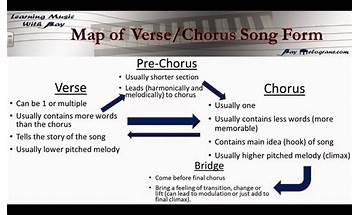Hip Hop News: aja monets When the Poems Do What They Do is the Weighted Blanket We All Need (2024)
It’s a rarity these days to be presented with an album that demands your attention. Not a polite request or a subtle suggestion. A real demand. Some folks might be averse to the blatant expectation, but it’s a compliment. A demonstration of the artist’s belief in your capability and an exercise in the importance of time — both yours and theirs. Listening, at its core, is a performance of respect. I recently went to a release for such an album: aja monet’s When The Poems Do What They Do (out todaIt’s a rarity these days to be presented with an album that demands your attention. Not a polite request or a subtle suggestion. A real demand. Some folks might be averse to the blatant expectation, but it’s a compliment. A demonstration of the artist’s belief in your capability and an exercise in the importance of time — both yours and theirs. Listening, at its core, is a performance of respect. I recently went to a release for such an album: aja monet’s When The Poems Do What They Do (out toda

It’s a rarity these days to be presented with an album that demands your attention. Not a polite request or a subtle suggestion. A real demand. Some folks might be averse to the blatant expectation, but it’s a compliment. A demonstration of the artist’s belief in your capability and an exercise in the importance of time — both yours and theirs. Listening, at its core, is a performance of respect.
I recently went to a release for such an album: aja monet’s When The Poems Do What They Do (out today, via drink sum watr) from the esteemed poet. Born and raised in Brooklyn, monet first came to prominence in 2007 when she was crowned the Grand Slam Champion at the Nuyorican Poets Café — still the youngest to do so at just 19. Since then she has become an esteemed teacher, community organizer, and grown deeper into her artistry. She has worked on social justice projects with the Dream Defenders and launched Smoke Signals Studio, her own venture to offer educational space to cultural workers. She has worked closely with Saul Williams, Vic Mensa, and Chance The Rapper as well as published four books of poetry. WTPDWTD is her debut music-based full-length album.
On a Tuesday night at The Heart Department, a Black-owned wellness space in the Arts District of downtown Los Angeles, a couple hundred people gathered to see monet and find out what does happen when poems do what they do. People were piled on pillows, leaning against walls, laid out on couches, and stretched on the floor. Eyes closed and absorbing.The audience was equal parts eager, patient, obedient and open. I had been digesting the album for a couple of weeks already, so it was a reward for me to see the individuals in that room experience monet’s offering for the first time. I watched them tear up, smile, laugh, nod, and sport that frown we wear when something is so good we act like it stole from us. Attention is the currency of time and everyone in that room was spending smartly. “I’m an artist and a human who has a lot of flaws, a lot of challenges, a lot of struggles,'' Monet told me later on a video call. “The only place I've ever known to go that has been a consistent home has been poetry. It's where I find room to grow, be flawed, be challenged, be outraged, change, reflect — room to be fully.”
On this album, three components blend to bring that home to life.
The sound
WTPDWTD is an album that joins a storied lineage of carefully crafted poems set to music. Even the opening drums pay homage to the legacy of early Gil Scott-Heron and The Last Poets albums. Though she’s made other music projects, this one’s a bit different. Instead of her reciting her poetry over beats or sparse instrumentation, this album boasts a collection of world class musicians convening with monet’s words. “The poems were not written for the music, the music was written to support the poems,” monet said. “The musicians all have a deep reverence for the tradition of blues and soul music. They're not listening for the sake of just sounding good, they're listening to heighten and to expand what's being said. It's a conversation.”
Who are these musicians? Samora Pinderhughes on piano, Elena Pinderhughes on flute, Luques Curtis on bass, Weedie Braimah on percussion, and Marcus Gilmore on drums. The musical director of the ensemble was multi award-winning Chief Xian aTunde Adjuah (FKA Christian Scott) who also features on trumpet throughout. Additional vocals are provided by Lonnie Holley, Eryn Allen Kane, Annabelle Freedman, Jadele McPherson, and Novena Carmel. One song, “yemaya,” closes out with a sample of Assata Shakur. The entire album is comprised of musician’s musicians, singer’s singers and poet’s poets. I’m hesitant to call it jazz or soul or blues or even Americana, but it’s all of them. The one thing I’m not hesitant to call it is a salve.
“What makes this project really special for me is being able to have collaborated with musicians I admire so greatly and who are so respected in their own art forms and careers,” monet said. Carefully recorded during the pandemic with only supportive details added in post-production, the creation of this album came about after being starved of community. There’s a hunger in the way the music is played, an appreciation for togetherness. Arising during an intense period of disorientation, this album chronicles the sound of regrounding. It localizes its listener like a weighted blanket. Instruments mingle with monet’s distinctive, measured yet animated voice to give listeners a real sense of place. Emitting “a raw account of what we experienced together in the creation of the songs” that monet wanted to capture.
The Words
monet makes constellations out of consonants and trowels out of vowels to dig us up from our depths and show us a way forward. Or rather, a way through. Her relationship to poetry “has always been informed by music and the musicality of words and language.” Simply reading the track titles creates poems unto themselves that underscore the essence of the project: “black joy/unhurt/weathering/the perfect storm” or “for sonia/yemaya” or “give thanks/for the kids who live.” Surely her writing takes a great deal of effort, but the way she delivers it is as if the truth just flows through her in rhyme. She deftly weaves between social injustices, self-love, federal ineptitude, the exaltation of underappreciated heroes and more in her dulcet tone to coax you out of your sense of solitary unease.
“I’m writing a ‘being here’ story,” monet said. “It's the reality of being alive in this time and trying to deal with the issues that we are facing.” Maybe that’s why so much of her work focuses on the idea of “joy as justice.” On “unhurt,” the fourth track on the album, she frames the inevitability of pain as our individual wellsprings for compassion and salvation. On “weathering,” monet delivers an intimate take on the selfless devotion awakened by love that rivals Yasiin Bey’s seminal closing verse on Jill Scott’s “Love Rain (Remix).” “It's in the weathering of those emotions that we come to know what it is to be alive. I think all my poems are seeking love or trying to get to that,” monet said. “I always talk about poetry as an organizing tool. It’s a place where people can enter difficult emotions and ideas and conversations, and start to possibly move in the direction of a collective vision. It doesn't mean that we're always going to agree or understand each other. But we can make room for each other.”
A striking aspect of monet’s work is her ability to carve out and present a Pan-Africanism for Black Americans in a highly accessible form. She weaves western African traditions with Caribbean musicality and Black American sensibilities in a way that doesn’t feel borrowed, forced, or searching. She presents it as entwined truths and harnessed legacies. Rather than simply explaining the African diaspora, she embodies and exalts it. Then she hands it to her listeners, packaged up real pretty, echoing of music. It’s that sense of localization again, a weighted blanket in anxious times. She demonstrates how complex histories might swirl around you, but this is where you are. Here. And it is where you belong.
The Artistry
Poetry, at its core, is an exercise in adoration. It’s about recognizing the impossibility of our lives and struggling to find ways of relaying the beauty and absurdity of the world back to itself. With this album, it’s clear that monet adores people. When her identity intersects with that adoration, it’s clear that she loves Black people, Black history, and Black persistence.
The album artwork itself tells a story. Photographed by Delphine Diallo, a French-Senegalese artist known for exploring the divine feminine, monet is wearing an artifact of a traditional crown from Nigeria. Her makeup was done by Nadia Tayeh, a Palestinian supporter of monet’s who wanted to thank her for advocating for the Palestinian struggle. Monet is situated in front of a deep, earthen red background. According to monet, “we wanted to conjure a very organic, but spiritual and majestic portal. The image is a powerful collaboration between the many diasporas. It's not just the African diaspora, it's also the Palestinian diaspora — with women at the center.”
As a disciple of an oral tradition, it’s easy to attribute the depth of monet’s work to the lineage she springs from. But that is an injustice. This album is more urgent than ancient. monet is scratching at a millisecond in the past or pointing to the next blink in the future. Like the present, it is an accumulation of everything up until now. Listening to her, particularly for people of color, is to feel every ancestor take a collective gasp and blow you forward. This album is all signal, no noise. “The most important thing that I have been able to experience as an artist is presence,” monet said. “No matter where you are, there you are.”
https://ajamonet.bandcamp.com/album/when-the-poems...">when the poems do what they do by aja monet
__
Nereya Otieno is a writer, thinker and ramen-eater currently based in Los Angeles.

 Musician
Musician 








![3omraha ma hategy* | عُمرها ما هاتيجي* ar Lyrics [Abyusif - أبيوسف]](/img/?q=3omraha ma hategy* | عُمرها ما هاتيجي* ar Lyrics [Abyusif - أبيوسف]&w=360&h=215)
![Do Rio pt Lyrics [Ver$al Mauro]](/img/?q=Do Rio pt Lyrics [Ver$al Mauro]&w=360&h=215)
![Eń Sulý kk Lyrics [Darkhan Juzz]](/img/?q=Eń Sulý kk Lyrics [Darkhan Juzz]&w=360&h=215)